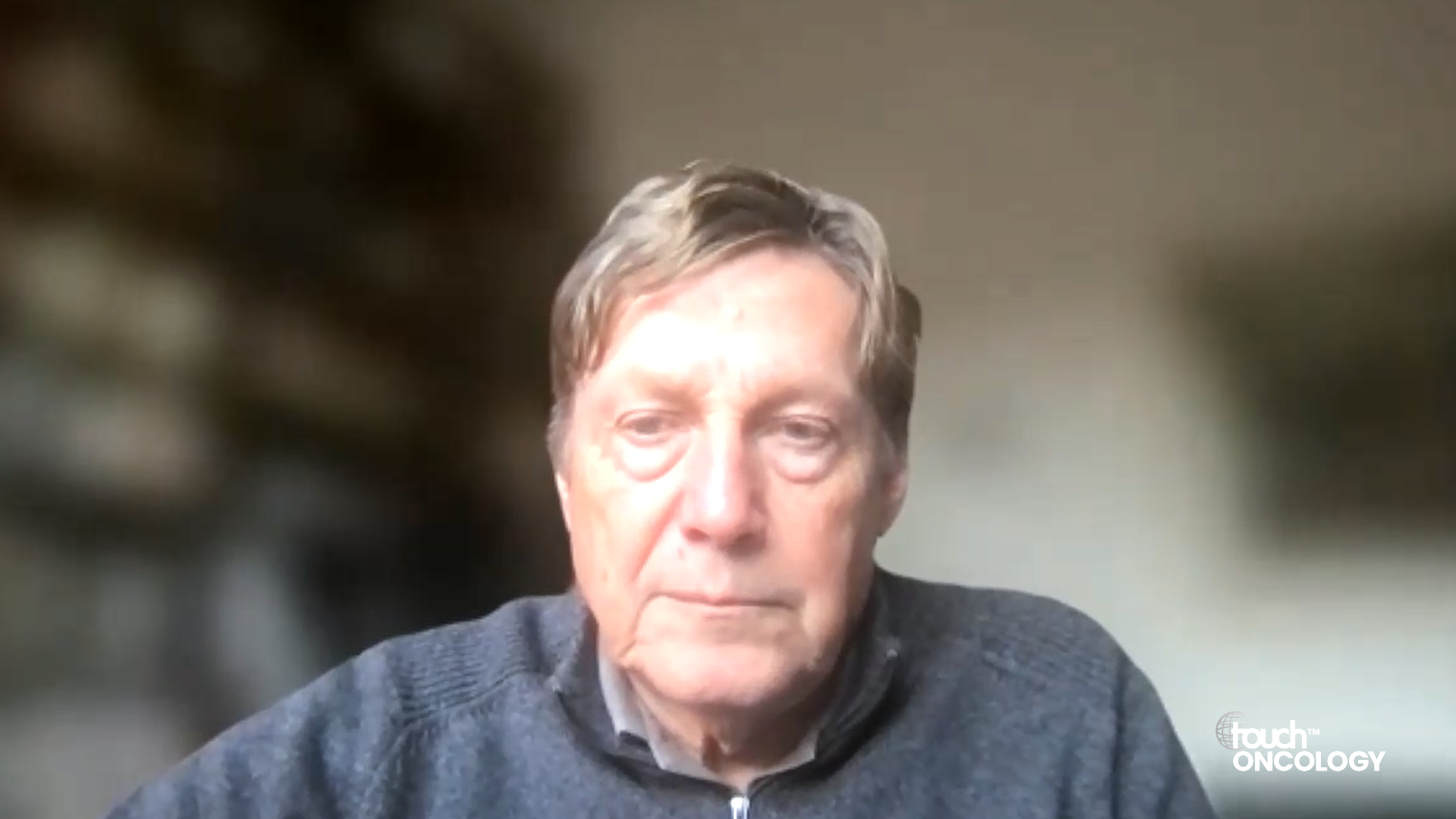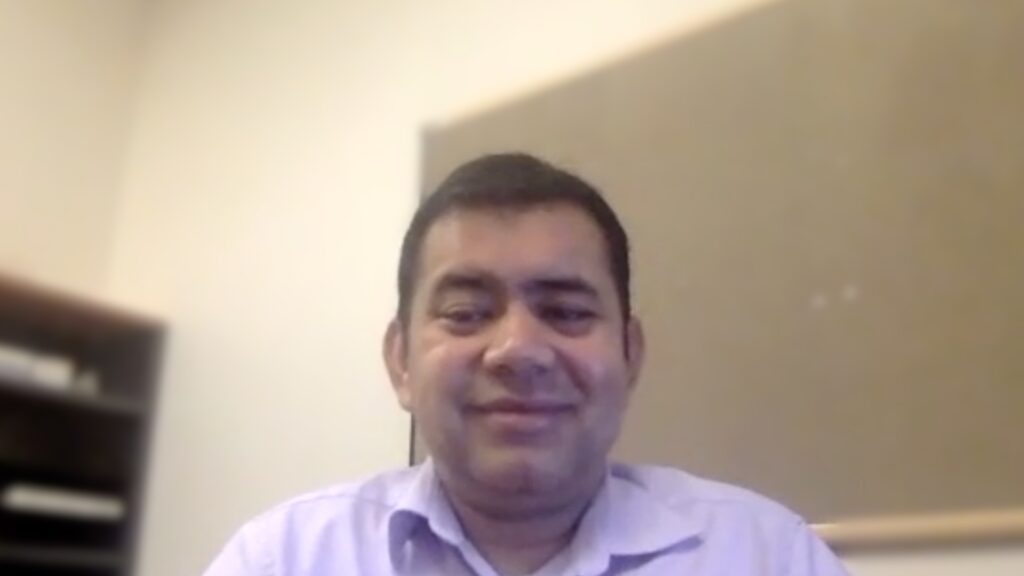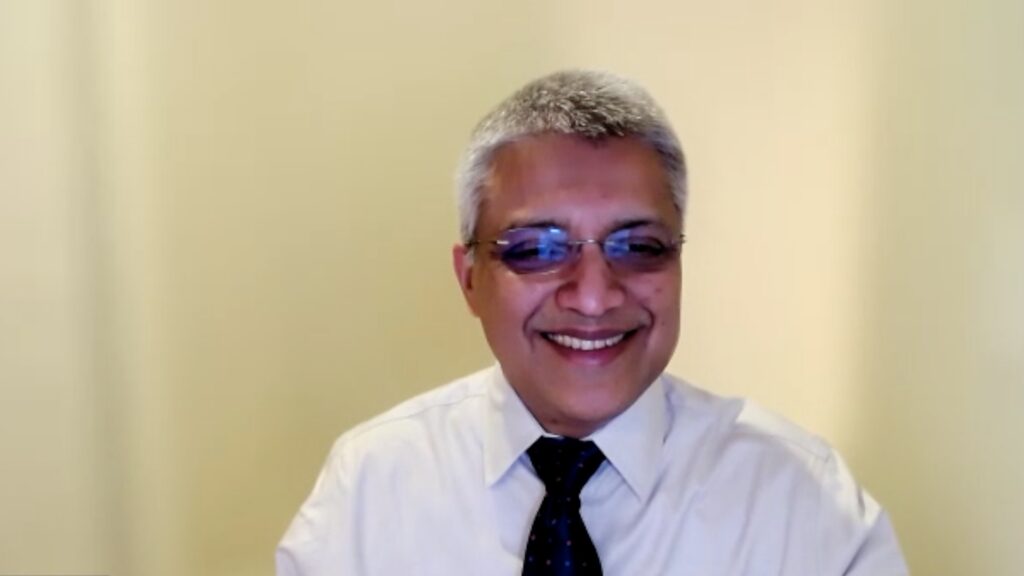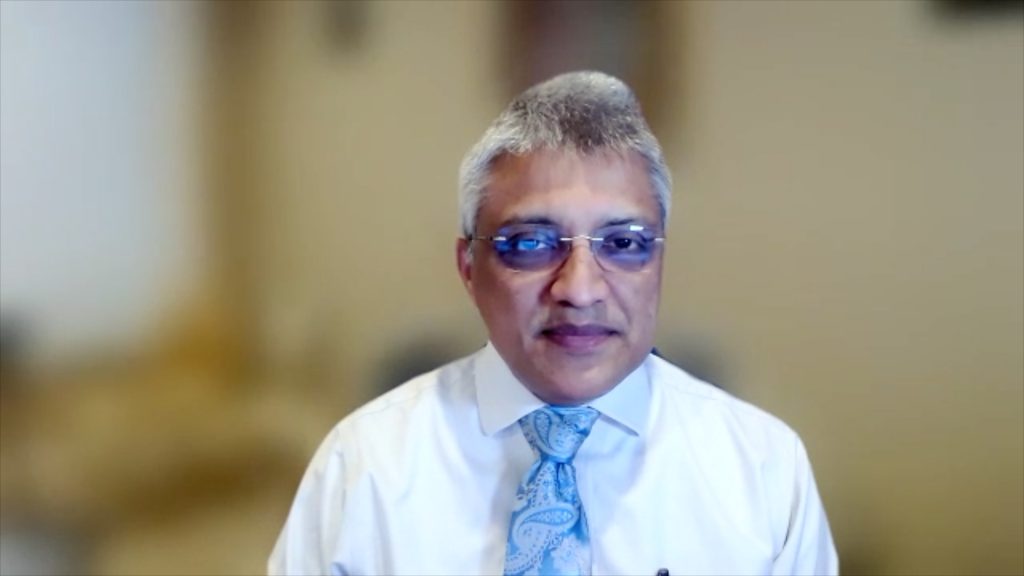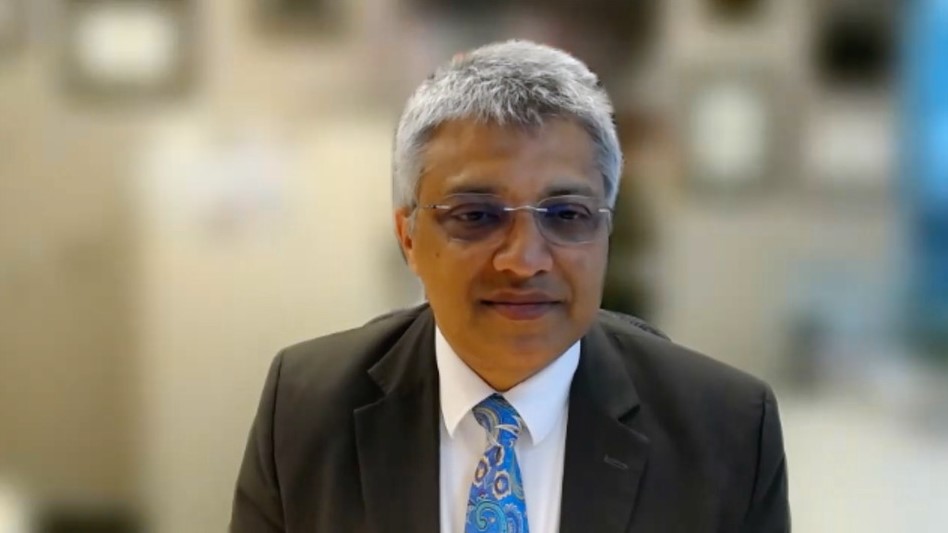The treatment paradigm for patients with multiple myeloma is very complex. In this touchONCOLOGY interview, we speak with Dr Binod Dhakal (Medical College of Wisconsin, Milwaukee, WI, USA) to break down the treatment paradigm in multiple myeloma, discussing how to handle different patient cases.
The abstract entitled ‘First phase 3 results from CARTITUDE-4: Cilta-cel versus standard of care (PVd or DPd) in lenalidomide-refractory multiple myeloma’ was presented at the American Society of Clinical Oncology Annual Meeting, 2–6, June 2023.
Question:
What is the treatment paradigm for patients with multiple myeloma? (00:18)
Disclosures: Binod Dhakal is a consultant for Genentech, Janssen, and Pfizer, reports honoraria from Arcellx, BMS, GSK, Janssen, Karyopharm, Natera and Sanofi, and is a speaker’s bureau participant with BMS, Janssen, Karyopharm and Sanofi.
Support: Interview and filming supported by Touch Medical Media. Interview conducted by Danielle Crosby.
Filmed as a highlight of ASCO 2023
Access more content on Multiple Myeloma here
Transcript:
Q. What is the treatment paradigm for patients with multiple myeloma?
So in 2023, the treatment paradigm, you know, is mainly based on the stage of the disease that I meant is whether the patients are newly diagnosed or the patients are relapsed and refractory. So in the context of our data, I am going to talk about the treatment patterns in relapse and refractory myeloma. To be honest, the treatment of relapsed and refractory myeloma is complex and is increasingly getting complex with the emergence of all these therapies. But to simplify, the way we treat the patients in relapsed/refractory myeloma is dividing the patients into either early relapse or late relapse.
Early relapse, conventionally, means we kind of classify them into patients with one to three prior lines of therapy, and the late relapse means those patients who had more than three prior lines of therapy. Now in the early relapse setting, we are very fortunate to have several drugs and combinations that have been approved by the FDA. But at the same time, given the fact that there are so many combinations, it is difficult to choose each particular regimen as there is no head to head comparison among those regimens which have been approved.
Regardless, the combination of three drugs, also called triplet, are the preferred regimen as long as patients can tolerate it. There are a number of regimens, and it all depends on whether the patients are on prior therapy with a particular regimen. Specifically, if the patients are on maintenance, and are relapsing off maintenance, and then a choice of regimen would be one sort of regimen. If they are not on maintenance, and then relapsing without any maintenance, then the choice of regimen would be different. For example, lenalidomide is a very commonly used maintenance regimen in myeloma, it is an approved regimen for those patients. And if the patients are relapsing off maintenance, then if you choose a treatment that would be based off the regimen, which does not contain lenalidomide. In that setting, I think, for example, combinations like daratumumab, pomalidomide and dexamethasone, daratumumab, carfilzomib and dexamethasone, isatuximab, carfilzomib and dexamethasone, and so on, so forth. Whereas if the patient is relapsing off maintenance or the patient is not getting any treatment or are not refractory to maintenance and drugs like lenalidomide, and the choice of drug could be daratumumab, lenalidomide and maintenance, carfilzomib, lenalidomide and maintenance and so on and so forth. So these are all approved regimens by the FDA, and we could choose based on whether the patients are relapsing on or off maintenance.
Now the other important thing to note is that what specific arrangement would be useful for each patient depends on the patient condition, based on, depends on the patient comorbidities, depends on the disease tempo, and also depends on the prior exposure to these drugs and if the patients are having any side effects to a particular regimen. One important factor we look at is the disease tempo or the progression, the rate of progression of the disease. In some cases, we are seeing a very slow progression called indolent relapse, and, in some cases, we see very fast relapse, called very rapid relapse. So if you have indolent relapse in some cases, we can even watch closely those patients. And if they are not, if you prefer a treatment, then you can choose some regimens which are milder to tolerate and which could treat those in indolent relapse. For example, drugs like elotuzumab, pomalidomide and dexamethasone. That is one regimen that is approved by the FDA, which can be used. And in those cases, daratumumab-based regimen also works as well, whereas, if somebody has a fast relapse, then usually the preferred regimen is daratumumab-based combination, carfilzomib-based combination, and so on and so forth.
Now as I already said, there is no head to head comparison of these drugs, but if you look at just the simple magnitude of the progression free survival (PFS) benefit, daratumumab or anti-CD38 with carfilzomib-based combination has shown very impressive PFS compared with the control arms. For example, those two regimens were approved based on the two studies, called CANDOR study that it led to the approval of daratumumab, carfilzomib and dexamethasone with the PFS as almost about 26–27 months in those patients, in one to three prior lines of therapy. And the other study is IKEMA study that led to the approval of isatuximab, carfilzomib and dexamethasone, where the PFS is almost 3 years/36 months, in those patients. So I think it is very good to see those highly effective regimens providing very superior efficacy responses in those patient populations, however, choosing one particular regimen would depend on a number of conditions that I mentioned before. Daratumumab, pomalidomide and dexamethasone and pomalidomide, bortezomib and dexamethasone are two other highly effective regimens that have been approved to be used in this patient population as well.
For the late relapses, things become a little bit more complex because they are a little bit difficult to treat the patient population because, in myeloma, as the patients progress to lines of therapy and they become more refractory, and then the duration of response to each particular arrangement becomes shorter. So it becomes more difficult to treat. Fortunately, in the last 2 to 3 years, we have seen this revolutionary treatment that is emerging in the space with the development of immunotherapies, including, the active immunotherapies like use of CAR-T therapy and the use of bispecific antibodies therapy. So that has really changed the course of the disease and the outcomes in these patients.
We have several agents that have been approved now. The two CAR-T against the BCMA, one is called idecabtagene vicleucel or ide-cel and the other one ciltacabtagene autoleucel or cilta-cel. And those are two CAR-T against BCMA. We also had approval of another different kind of immunotherapy called bispecific antibodies, and one of them, called teclistamab, was approved last year, again, targeting BCMA.
There are a number of agents being explored in this setting as a part of the clinical trial. We have other drugs like selinexor, an XPO1 inhibitor, which is an oral pill, and that has been approved in this setting. Besides that, in this setting we can use the treatment that the patient has not seen before. I mean, recycling some of the drugs that the patient was exposed to before, but probably not refractory to, we can use that. But regardless, as you can see, it is very complex, the treatment paradigm. We have so many options, but the best way the patient can be served in this setting is by clinical trials looking for new drugs and new mechanisms of action, but also now we are fortunate to have these very highly effective treatments available from the setting. In both early and late relapses, I think the preferred option would be a clinical trial if that is available for the patients.
Subtitles and transcript are auto generated


